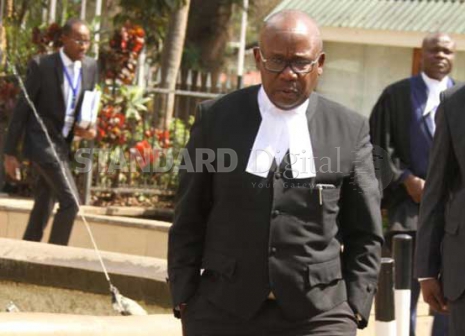×
The Standard e-Paper
Smart Minds Choose Us

Attorney General Githu Muigai on Tuesday asked the Supreme Court to close its ears to political intrigues and determine the presidential election petition based on law.
The AG, who was submitting as a friend of the court, argued that although political airs hang on the case filed by National Super Alliance (NASA) presidential candidate Raila Odinga, the seven judges ought to consider the voter first.